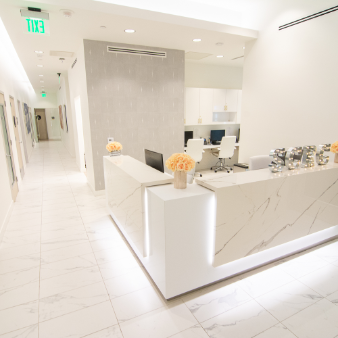

When you make the decision to freeze your eggs, you offer your future self an opportunity to plan pregnancy on your terms and your timeline. While there are no guarantees in medicine—or in life—egg freezing (also known as oocyte cryopreservation) is the best option available for women who know they want to get pregnant someday and want to slow the biological countdown clock. Whether you’re just mulling the idea over or know for sure that egg freezing is for you, you are likely to have some questions. One of the most common queries about egg freezing is how many eggs should you freeze to give yourself the best chance of success in the future?
The big question: is there a “magic number” of eggs I should freeze?
The short answer is no: there isn’t a magic number which will ensure that you will be able to conceive and get pregnant when you are ready to use your frozen eggs. You can look at the question from two sides. On the one hand, if everything goes right and luck is on your side, one great egg might be enough. On the other hand, IVF can sometimes be a numbers game: the more eggs you can freeze, the greater your chances of success.
{{cta(‘3ca81ccb-69fa-4330-aeb8-ffca7de40bca’)}}
In practice, the target number of eggs your fertility expert will recommend for you to freeze mainly depends on your age at the time of freezing. This is the biggest deciding factor in how many eggs you should freeze. We know that the eggs of younger women are almost always of higher quality, which means that they are more likely to fertilize and result in a pregnancy, so younger women generally need to freeze less eggs than older women. A study published in the medical journal Sterility and Fertility in September of 2017 suggest the following rough numbers:
- Women under 35: freezing 15 mature eggs offers a cumulative 85% chance of at least one live birth.
- Women 35 to 37: freezing 20 mature eggs offers a cumulative 80% chance of at least one live birth
- Women 38 to 40: freezing 30 mature eggs offers a cumulative 75% chance of at least one live birth.
- Women 40 to 42: freezing 30 mature eggs offers a cumulative 50% chance of at least one live birth.
These numbers are not exact, because there is so much variation between women, but they offer a helpful guideline. There are other factors which will affect how many eggs you should freeze, such as the number of cycles you are willing to undergo, whether your ovarian function tests indicate that your egg quality is likely to be lower or higher than average for your age, and how many children you are hoping to have. Your doctor will work with you to determine the correct target number for your unique situation.
If more is better, is it possible to freeze too many eggs?
Natural ovulation normally produces one egg a month, while an average egg freezing cycle requires a course of fertility medications in order to stimulate the ovaries to mature more eggs at once. Egg freezing is a very safe process with few side effects, but it is demanding for your ovaries. In order to avoid rare complications such as Ovarian Hyperstimulation Syndrome (OHSS) where the ovaries become too sensitive and swollen, your fertility expert will want to stimulate your ovaries just the right amount to produce the recommended amount of eggs.
How many cycles will I need to get enough eggs?
The number of cycles required to achieve the target number of eggs will depend on the age of the patient, her ovarian reserve and function, and the dose of fertility medication used (Women with certain infertility related conditions may be more or less sensitive and require different doses of fertility medication to achieve the desired number of eggs.) Older women might only produce 5 or 6 eggs per cycle. It is important to check her ovarian reserve before deciding the number of cycles needed. Young, healthy women may be able to freeze 15 to 20 eggs in one cycle, but 10 is more usual. Attempting to retrieve and freeze more than 20 eggs in one cycle is not usually recommend for a couple of reasons: the dose of fertility medications required to produce a very high number of mature eggs can trigger OHSS, and the goal should be to maximize the number of eggs as safely as possible.
As with all fertility treatments, personalization is key. Statistics and formulas are helpful tools for understanding your chances and planning for the future, but your best chances of success rely on a strong working relationship between you and your fertility team. Your fertility clinic should treat you as an individual, not as a number on a chart. When it comes to deciding how many eggs to freeze and how many cycles to do, careful testing, thoughtful analysis, and a plan carefully tailored to your body and your unique situation are worth their weight in gold.
If you have questions about how the egg freezing process works, whether fertility preservation is the right choice for you, or whether right now is the right time time to freeze your eggs, don’t hesitate to ask your doctor and investigate all your options. Your future self will thank you.
{{cta(‘1871a489-24e7-46c6-94a6-443b57752764′,’justifycenter’)}}



